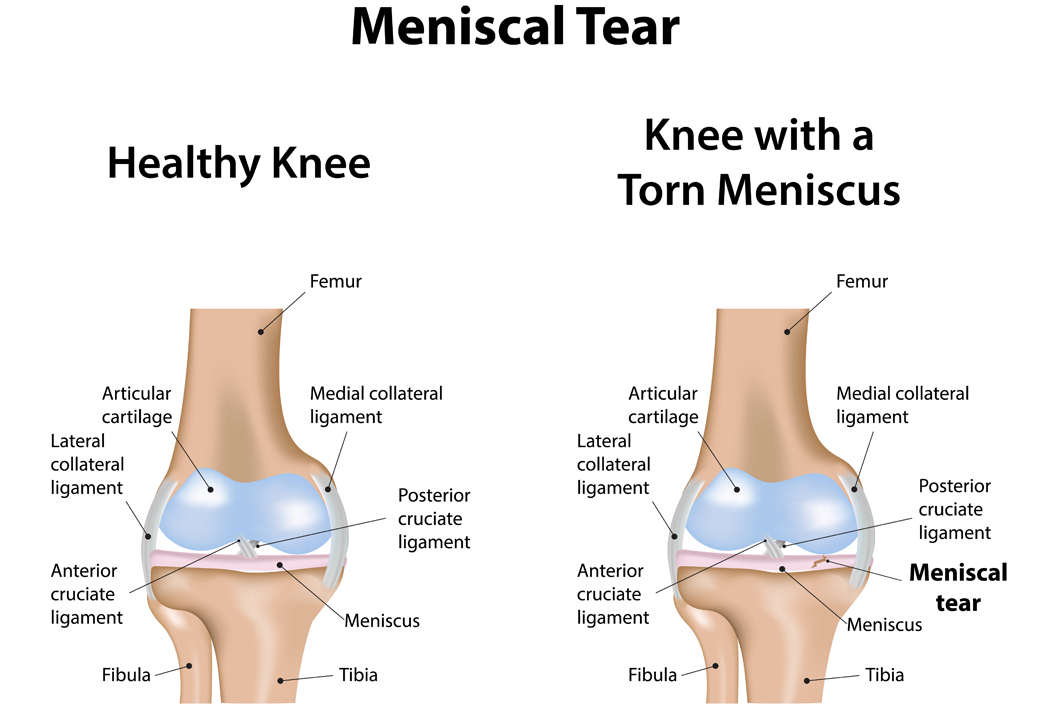Health
How to heal a torn meniscus naturally: Effective strategies

Suffering from a torn meniscus can be a painful and debilitating experience, significantly impacting an individual’s mobility and quality of life. While severe cases often require surgical intervention, there are natural methods that can aid in the healing process of a milder torn meniscus.
In this article, you will learn how to heal a torn meniscus naturally with various natural remedies and lifestyle changes that can help alleviate the symptoms of a meniscus tear and promote healing. These methods are aimed at those seeking to enhance their recovery alongside professional medical advice.
Understanding the meniscus tear
The meniscus is a piece of cartilage in your knee that cushions and stabilizes the joint. It protects the bones from wear and tear. However, it can be injured during activities that put pressure on or rotate the knee joint. Meniscus tears are common in contact sports and activities that involve heavy lifting or squatting.
Symptoms of a meniscus tear:
- Pain in the knee
- Swelling
- Limited motion of the knee joint
- The sensation of the knee “giving way”
How to heal a torn meniscus naturally?
While it’s crucial to consult with a healthcare provider for a comprehensive treatment plan, several natural approaches can support meniscus tear recovery.
Rest and avoidance of stressful activities
The first step in healing a torn meniscus naturally is to allow the knee to rest. Avoid activities that might exacerbate the injury, such as running, jumping, or any form of heavy lifting that involves the knees.
Ice therapy
Applying ice to the injured knee can help reduce swelling and pain. Ice therapy should be applied for 20 minutes every few hours during the first few days following the injury.
Elevation
Elevate the injured leg to reduce swelling. Keeping the knee elevated above the level of the heart can effectively decrease inflammation and aid in recovery.
Compression
Wearing a compressive knee sleeve or wrap can help reduce swelling and provide support to the knee area, making movement less painful.
Nutritional support for meniscus repair
Nutrition plays a crucial role in healing from any injury, including a torn meniscus. Certain nutrients can help speed up the healing process.
Increase protein intake
Proteins are the building blocks of tissue repair. Eating a protein-rich diet can help the body rebuild damaged cartilage.
Omega-3 fatty acids
Omega-3 fatty acids, found in fish oil, flax seeds, and walnuts, can help reduce inflammation around the knee and other joints.
Vitamin C and E
These vitamins are known for their anti-inflammatory properties and are essential in collagen formation, which is crucial for cartilage repair.
Gelatin and collagen supplements
Studies suggest that gelatin and collagen supplements can help reduce joint pain and increase cartilage strength.
Physical therapy and gentle exercise
Engaging in physical activity and gentle exercise under professional guidance can greatly enhance the strength and flexibility of the knee.
Stretching exercises
Gentle stretching can improve flexibility and reduce stiffness in the knee.
Strengthening exercises
Strengthening the muscles around the knee can help take some of the load off the meniscus, allowing it to heal. Exercises should be done under the guidance of a physical therapist to avoid exacerbating the injury.
Low-impact cardio
Activities like swimming or cycling can maintain cardiovascular fitness without putting too much strain on the knee.
Herbal remedies
Certain herbs are known for their anti-inflammatory and pain-relieving properties which can be beneficial in treating a torn meniscus.
Turmeric
Turmeric contains curcumin, a compound with powerful anti-inflammatory properties.
Ginger
Ginger can also help reduce symptoms of pain and inflammation and is easy to include in your diet or consume as a tea.
Conclusion: A multifaceted natural approach
Healing a torn meniscus naturally involves a multifaceted approach that includes proper diet, physical therapy, and safe exercises along with effective natural remedies to alleviate pain and inflammation. While these strategies can help in the recovery process, it’s important to remember that they should complement, not replace, professional medical treatments, especially in severe cases.
Regular consultation with healthcare providers is crucial to ensure a safe and effective recovery process. Maintaining the health of your knee joint after a meniscus tear is crucial for long-term mobility and comfort. Also, here are some similar articles that you might find useful:
